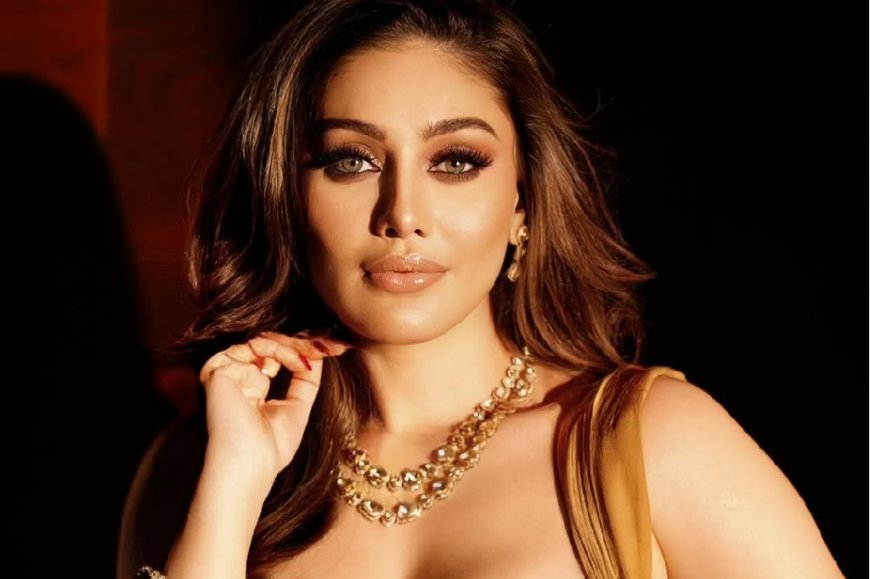Shefali Jariwala’s Tragedy Unmasks the Dark Reality Behind India’s ₹8000-Crore Beauty Supplement Industry
Shefali Jariwala’s health scare highlights the hidden dangers of India's booming ₹8000-crore beauty supplement industry. Here’s what you must know.

Introduction
In a world where beauty standards are driven by glossy social media images and flawless celebrity endorsements, the recent tragedy involving actress and former Bigg Boss contestant Shefali Jariwala has sparked a national conversation. Known for her stunning looks and fitness routines, Shefali's unexpected health crisis—allegedly linked to long-term use of beauty supplements—has sent shockwaves through the ₹8000-crore Indian nutraceutical and beauty supplement industry.
What began as an innocent desire to maintain youthful skin and a toned physique quickly spiraled into a nightmare, shedding light on an unregulated, dangerously glamorized sector that thrives on consumer insecurities.
What Happened to Shefali Jariwala?
Shefali Jariwala, best remembered for her iconic appearance in the music video Kaanta Laga, recently revealed through a close source that she suffered serious health complications allegedly after consuming a widely popular collagen-based beauty supplement. While she has not named the brand due to potential legal consequences, industry insiders confirm the product is a best-seller on major e-commerce platforms.
Symptoms reportedly included acute liver distress, hormonal imbalance, and chronic fatigue—conditions that are disturbingly common among users of unregulated nutraceuticals. The incident has prompted experts to revisit the increasing trend of unsupervised beauty supplement consumption across India.
The Rise of the ₹8000-Crore Beauty Supplement Industry
According to a 2024 report by the Indian Nutraceutical Association, the beauty supplement sector—comprising collagen powders, skin-whitening capsules, biotin tablets, and detox teas—is growing at a compounded annual growth rate (CAGR) of 17.5%. With the market currently valued at ₹8000 crore, it is projected to surpass ₹13,000 crore by 2028.
This growth is fueled by:
-
Influencer marketing on platforms like Instagram and YouTube
-
Aggressive celebrity endorsements
-
Inadequate regulatory oversight
-
Increasing consumer obsession with anti-aging and skin-lightening products
However, behind the glossy packaging lies a murky underworld of poorly tested ingredients, misleading claims, and serious health risks.
Lack of Regulation: A Silent Killer
Despite being classified under nutraceuticals or dietary supplements, most beauty products in India do not require the same stringent testing as pharmaceuticals. The Food Safety and Standards Authority of India (FSSAI) mandates basic compliance but leaves several loopholes.
“The majority of these supplements are not clinically tested for long-term safety,” says Dr. Rina Bhattacharya, a clinical toxicologist based in Mumbai. “Consumers think ‘natural’ means safe, but many of these supplements contain synthetic compounds or heavy metals that can harm the liver, kidneys, and hormonal system.”
In 2023 alone, the Drug Controller General of India (DCGI) flagged over 42 products for violating safety norms, yet only 7 were withdrawn from the market.
Celebrities: The Glamourous Trap
The use of Bollywood celebrities and fitness influencers to market supplements plays a critical role in shaping public opinion. These endorsements often come without disclaimers or scientific backing.
Shefali Jariwala herself had shared various supplement routines on her Instagram profile in the past. Though she never directly endorsed a specific brand, her followers often inquired and emulated her routines without consulting healthcare professionals.
This "social proof" creates a dangerous cycle where followers assume efficacy and safety, simply because a public figure uses the product.
A Call for Accountability
The wake-up call brought by Shefali’s health scare has led to public outrage and petitions demanding stricter regulation of over-the-counter (OTC) beauty supplements.
Some of the key reforms being advocated include:
-
Mandatory Clinical Trials: Products claiming health or cosmetic benefits should undergo at least one peer-reviewed trial.
-
Transparent Ingredient Labelling: Many supplements list proprietary blends, which hide potentially harmful additives.
-
Endorser Accountability: Influencers and celebrities should be held liable for promoting products that cause harm.
-
Ban on Online Sales Without Prescription: High-risk supplements should not be available without a valid prescription or doctor consultation.
Expert Opinions: What You Should Know Before You Buy
If you're considering beauty supplements, here are some key pointers:
-
Consult a Doctor or Dermatologist: Always speak to a medical professional before beginning any supplement regimen.
-
Avoid Multi-level Marketing Brands: Many pyramid-style companies exaggerate claims and underreport side effects.
-
Check Certifications: Look for FSSAI approval and international certifications like GMP (Good Manufacturing Practices) and ISO.
-
Research the Ingredients: Google each ingredient. If it’s hard to pronounce or lacks clinical studies, it’s best avoided.
Real Stories Beyond Shefali
Shefali's experience is not an isolated incident. Several lesser-known cases have emerged where consumers faced:
-
Severe acne outbreaks after collagen overuse
-
Menstrual irregularities due to biotin toxicity
-
Liver damage linked to skin-whitening pills containing glutathione
In fact, a 2023 study from AIIMS Delhi found that 18% of regular supplement users developed side effects requiring medical intervention within six months of use.
Conclusion
Shefali Jariwala’s story has brought necessary attention to a dangerously under-regulated segment of the wellness industry. While beauty supplements promise glowing skin and lustrous hair, the hidden dangers can be far more permanent and devastating.
As India races toward becoming one of the top five beauty supplement markets globally, consumer awareness, policy reforms, and ethical marketing must go hand-in-hand. Otherwise, more tragedies like Shefali’s will remain inevitable casualties of a system built more on profit than safety.














